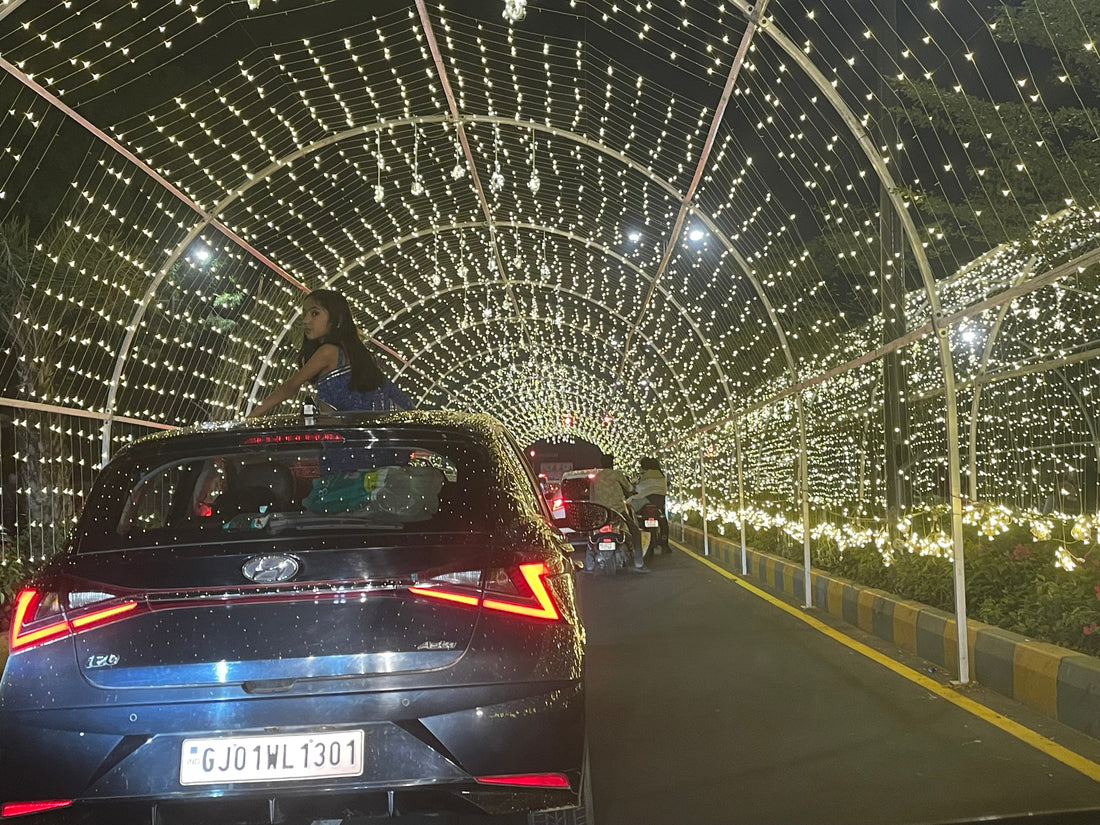
Diwali in Gujarat
Share
I write these lines when it is early morning, sleepy, before departure for a short vacation. Contrary to what usually happens, there is a certain silence in the air (Relative silence, just as I wrote the word silence a car horn, a firecracker and a temple bell rang simultaneously). It is the quiet that follows a night of celebration, as Diwali was being celebrated here last night.
Yesterday was the last day of the year in these parts. Fireworks, shouts, rituals. Even where I live a Pooja, a Hindu ritual, was held in honor of the two deities of Diwali: Ganesha, the one who removes obstacles, and Laxmi, the goddess of wealth and prosperity. Oil, ghee and incense were burned in earthen and bronze lamps. The house was purified in preparation for the coming year.
The other night, at a reception, someone explained to me about Diwali, how that was the last day of the year in Gujarat only, and other areas have other dates as New Year's Day. He also explained that Diwali is the festival of lights. Not of sunlight, but of human lights from oil lamps. It refers to a happy moment in the epic of the Ramayana, one of the two great myths of Hindu tradition, along with the Mahabaratha. Rama, whose consort had been kidnapped and held captive for a long time by the demon Ravana, returns triumphantly with his newfound consort to the city of Ayodhya, and along the perimeter of the city walls he is greeted by the light of thousands of oil lamps. This is Diwali: the end of a long torment. As if Odysseus had been able to return to Ithaca openly and festively, recognized and celebrated by a community that loves him. Thus, the city is full of lights: lamps, firecrackers, neons, on the streets, on the facades of the houses, everywhere.
I was also told that for the Jains -- who are also Hindus, but have fundamental differences in their beliefs -- Diwali celebrates something completely different. The Jain have 24 figures, called Tirthankaras, who throughout human history have succeeded each other and become awakened. The last of these awakened beings, the 24th, Mahavira, decided that the day of his liberation (My friends used a very poetic and clear term, 'emancipation'), would be the day corresponding to Diwali.
I was then reminded of the many holidays that occur in different contexts corresponding to this period: Halloween, All Saints' Day. I was also told that until a few years ago, then the memory of this little ritual was lost, at three or four in the morning on the day after Diwali, a woman would knock on your door offering salt. Not ground salt, but in its original form, in crystals. You would accept the salt and give the woman some money, some food or something else in return, without obligation.

Keep following sattvabestofindia.com for the latest news about life here, and for special offer on all the authentic products that we will find here for you.
Subscribe to Our Blog / Iscriviti al nostro Blog
Get notified when we post new content!
